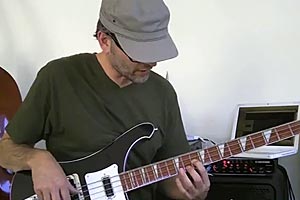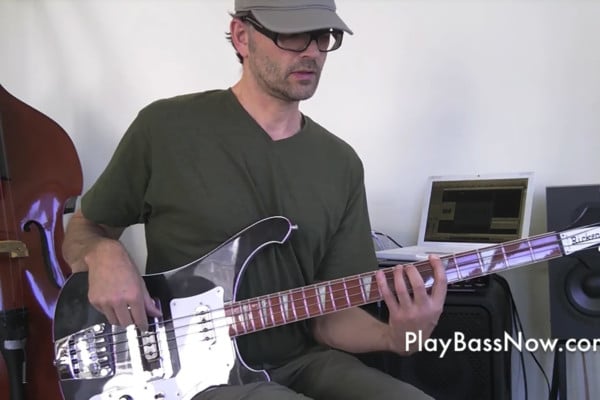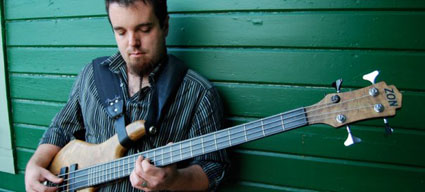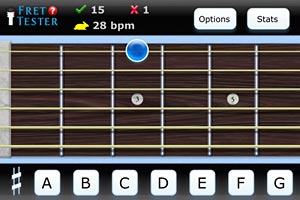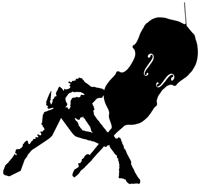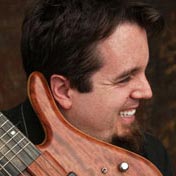Practicing Archives - Page 14
Practical Theory: Practice Tips for Scales (Part 3)
In this third and final installment of the Practice Tips for Scales series, we continue our look at the Major tetrachord formula to practicing scales. (Be sure to check out Part 1 and Part 2). This week, we dive into arpeggios, using consistent patterns to repeat on the upper register of the neck. Once we get comfortable with the pattern,...
Practical Theory: Practice Tips for Scales (Part 2)
This week, we’re continuing where we left off with Part 1 of this series, covering the Major tetrachord formula to practice scales. This week, we expand on the basics by covering various finger patterns and covering the entire neck. As part of this exercise, we’ll also skip notes in the scale, playing in thirds, fourths, fifths, and so on, to...
The Reading Hurdle and How to Jump It
Q: I’m working on being a more fluent sight-reader. I can read notes and their values but it takes me a while to transfer that to the instrument. Any advice on how to most effectively improve? A: Good for you for devoting time to this worthwhile endeavor! Learning to read music is much like learning to read a spoken language....
Fret Tester: A Look at the Fretboard Trainer App for iOS
I am often asked how one can better learn the fretboard and how one can improve their reading. I generally talk about certain things I’ve spent time studying and how to practice with intention and focus, the importance of repetition (to make information stick) and suggest a few books, and so on. I now will have one more thing to...
Playing By Yourself: A Guide to Inspirational Practice Routines
Q: I have a hard time remaining interested when I try and practice at home by myself. I have no problem finding inspiration when playing with others, but I quickly get bored and want to stop playing when I’m home alone. Have any tips? A: I think this is a common issue. Many of us are “reactive players”. We need...
Tips for Memorizing Music
I have trouble memorizing. Do you have any suggestions? —–Gina D. In general, if we have played a piece enough times, we often find we have memorized it without trying. However, some pieces (and styles of music) are more difficult to memorize than others and may require special attention. Also, on occasion, we may also find that we don’t have...
Capo: A Look Into the Song Learning App for iOS
Many of us have longed for a good, quality “Slow Downer” for iOS. Look no further! Capo, by SuperMegaUltraGroovy, will allow you to pick any song from your music library and adjust the speed, without altering pitch or alter the pitch, without altering speed, or both. Once you’ve selected your song, you’re basically presented with the wave form. You can...
Technique Series: Fast Fingers
Although there are musical situations when we want our left hand fingers to strike the fingerboard forcefully, we most often want to use the minimum amount of pressure, and no more. To do otherwise is generally inefficient, clumsy, noisy and speeds up muscle fatigue, among other things. When it comes to left hand technique, the speed of the finger movement...
Musical Explorations: 12 Tones, 12 Beats and Franc O’Shea
Q: Is there anything outside of the norm that you are working on or thinking about with your musical explorations? A: Actually, in the May issue of Bass Guitar Magazine (UK), Franc O’Shea (his columns are always enlightening and thought provoking), wrote an interesting piece on dividing the chromatic scale and giving every semi-tone a pulse in a bar of...
More Approaches to Jazz Tunes
I’ve talked in the past about delving into a new tune using what I call “The Treatment.” It’s a flexible yet organized way to become more fluent on a tune, especially if it is new to you. Sometimes, however, we are looking to delve even more deeply into a tune, or perhaps we find ourselves falling into a musical rut....
Past the Point of Unknowing
Q: I tend to hit a wall while practicing over a tune, where I don’t know what else to play. I know you’ve explained some chordal exercises and other ways to expand one’s vocabulary, but do you have any other thoughts about what to play when you just don’t know what to play? A: Actually, yes. We all hit a...
Playing Pain Free
Q: As someone who wants to practice for hours each day, what advice would you give to prevent injury? Do you have any warm up routines or other advice? A: You know, I’ve been lucky. I’ve never consciously warmed up when practicing, and I’ve never had any pain issues. However, I’ve noticed more recently that it takes my hands and...
